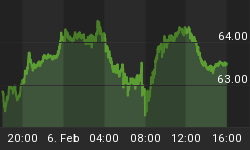It's easy to describe what an unhealthy risk is: scuba diving with a Great White Shark while holding a raw, rib-eye steak in your hand, for example.
But it's a little harder to discern what a healthy risk is. Some seem to think safety in numbers amounts to a healthy risk -- the more partakers, the less the risk. In other words, as measured by head count, it looks like a lot of investors have followed Wall Street's lead: Living on the h-EDGE fund is, indeed, a safe bet.
A December 15 New York Times article reports:
"Hedge funds have grown at supersonic speed [to become] the most important players in today's financial markets."
And, a Wall Street Journal column from the same day explains just how "important" IMPORTANT really is:
-
In the first 10 months of 2004, $106.6 billion flowed into hedge funds vs. $72.2 billion in all of 2003.
-
Assets in hedge funds have grown by 260% over the past five years, to a $1 trillion total ($1,000,000,000,000).
With this many zeros, it's natural to think... Superior performance in hedge funds must account for the rapid growth.
Please think again: Hedge funds gained 19.6% in 2003 vs. 7.1% year-to-date through November 2004. Not to mention the fact that one in ten hedge funds go under each year, according to the Journal of Investment Management.
Oh, and another thing: hedge funds are not subject to government regulation, meaning information on performance is provided voluntary.
We could go on listing the potential hazards of the hedge fund industry (high fees, inflated returns, etc.) but the fact is, the fire of "one of the hottest investment vehicles" is only getting hotter.
And it's not just the wealthy (investing in hedge funds typically requires a minimum net worth of $1 million) who are hopping in. The Wall Street Journal piece reveals: "Hedge fund investors include one in five pension funds," and many large institutions such as JP Morgan.
In the words of one chief strategist:
"The low hanging fruit has been picked over by swarming hedge fund investor locusts."
Think about it: If the hedge fund "fruit" turns out to be rotten, who will suffer the most now? The already-wealthy investor, OR the average JOE/JANE who entrusted their children's educational future, savings, mortgage, and retirement in the pension funds and banks that also ate of that fruit?
But hey, as one investment advisor observes:
"Hedge funds are more likely to do well when stocks fare poorly... They are a way to not only garner double-digit returns but also to reduce the overall volatility of an individual's portfolio."
Obviously when the stakes are this high, it's important to get the facts straight, and the straight story is this:
-
Most hedge funds are little more than "momentum players," as revealed in a recent study by two finance professors at Stanford and Princeton.
-
Extreme sentiment readings among hedge fund operators have been remarkably good "leading indicators" of an approaching turn in the stock market (the same is true of the U.S. dollar).
-
Today's sentiment readings among "Large Speculators" (i.e. hedge funds) regarding stocks now stand at all-time record levels.
Does this look like safety in numbers, or more like blood in the water? Eventually the answer becomes clear to everyone, and clearly too late to those who had it wrong beforehand. The facts and the evidence say that it's time to get the heck out of the water.















